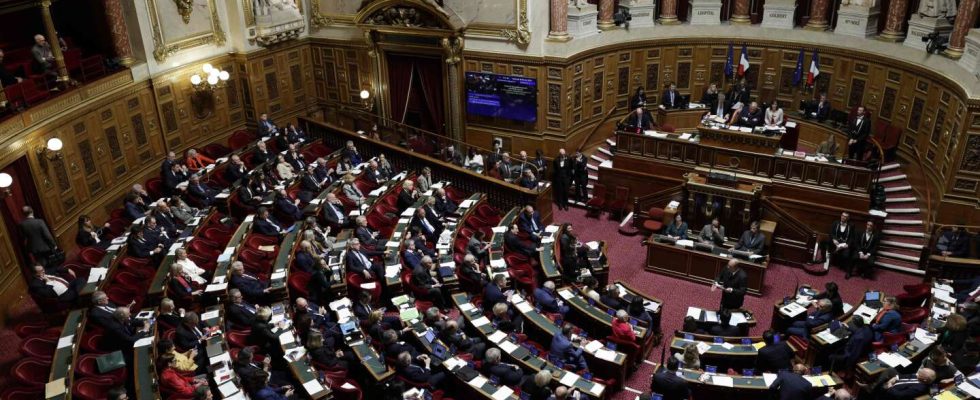Usually, the installation of a giant screen on the Place du Trocadéro, in Paris, allows high-level sporting competitions to be viewed. This Monday, March 5 afternoon, on the Human Rights square, an event of a completely different nature will be able to be followed live: the vote, by Parliament meeting in Congress, of the constitutional bill establishing the voluntary termination of pregnancy (abortion) in the Constitution. For the Women’s Foundation and the organizing feminist associations, in partnership with the Paris town hall, it is a question of celebrating a “festive and historical event”.
A “historical moment”. The expression has been on everyone’s lips since the adoption, Wednesday February 28 in the Senate, of this constitutional bill, paving the way for the meeting of Congress. Historian Christine Bard, a specialist in the history of women and gender, observes that “cIt’s not that frequent that we qualify as a historic moment”. Either “a moment that we feel is very important and which has a strong symbolic impact. » Does the entry of abortion into the Constitution deserve this term? The historian agrees, adding mischievously: “I had never seen such cries of joy from women in the Senate, that alone is historic. »
In the present case, the historical dimension “can be measured at several levels”, according to Bibia Pavard, also a historian of feminism. “This is the argument put forward in the debates by the parliamentarians themselves, who made it a way of supporting this constitutionalization; several senators also invoked history in their interventions, anchoring this moment in the long history of feminist struggles and the fight for abortion since the Veil law of 1974 [qui dépénalisa l’IVG] “.
“A fundamental freedom”
A continuity claimed by Violaine Lucas, the president of the Choisir la cause des femmes association, founded by Gisèle Halimi, who welcomes “a great victory, powerful, with high symbolic significance”, as well as an important message addressed to anti-choice movements on a European scale.
During parliamentary debates, “expressed the idea of a consensus around the fact that abortion was a fundamental freedom, and more broadly support for the right of women to dispose of their bodies, which Simone Veil could never have said in 1974notes Bibia Pavard. This feminist terminology which appeared radical in the 1970s is today supported by institutions. »
You have 61.52% of this article left to read. The rest is reserved for subscribers.

